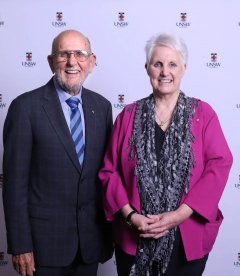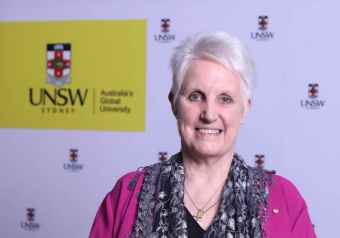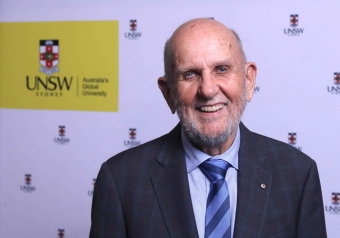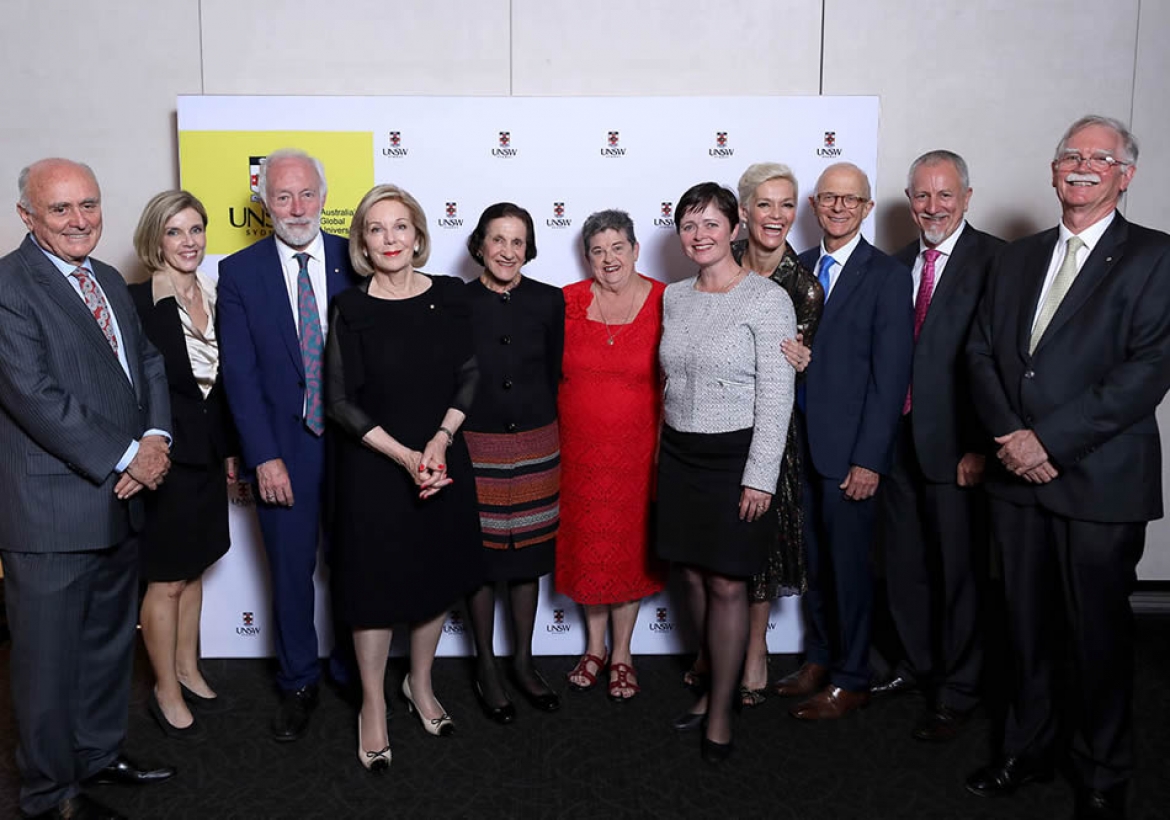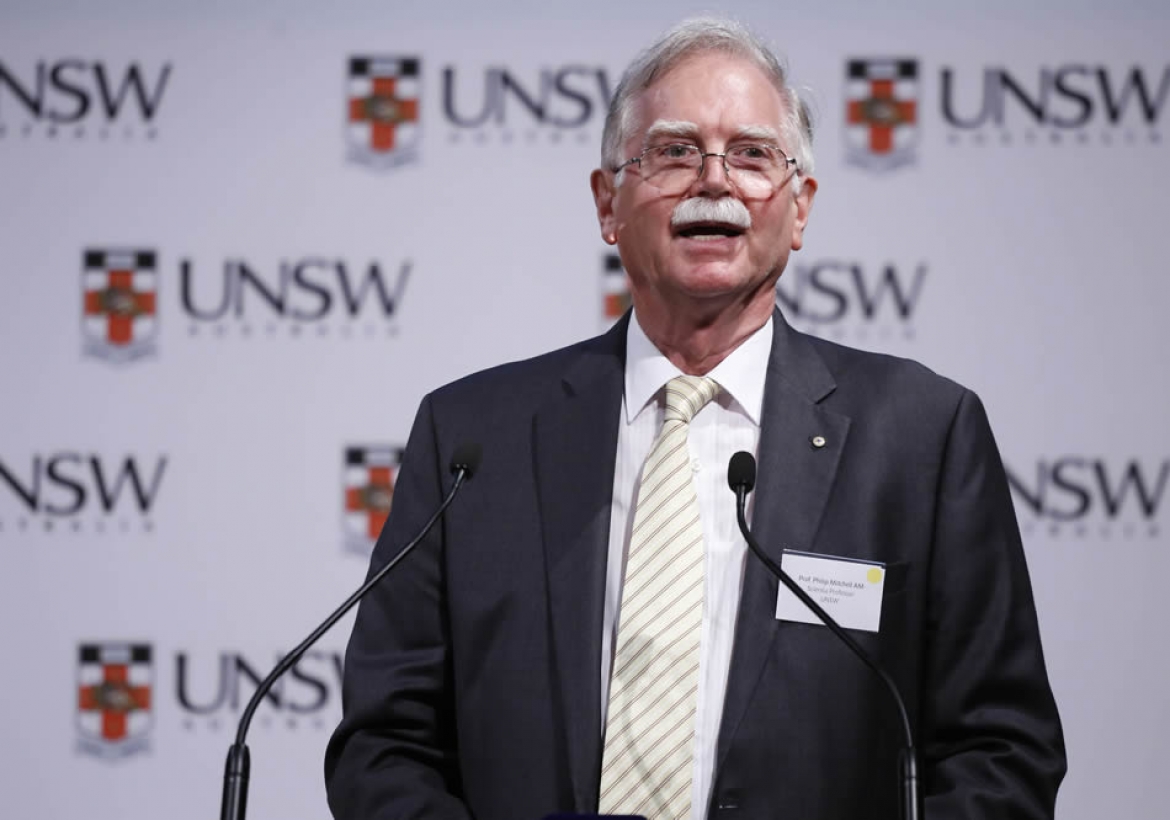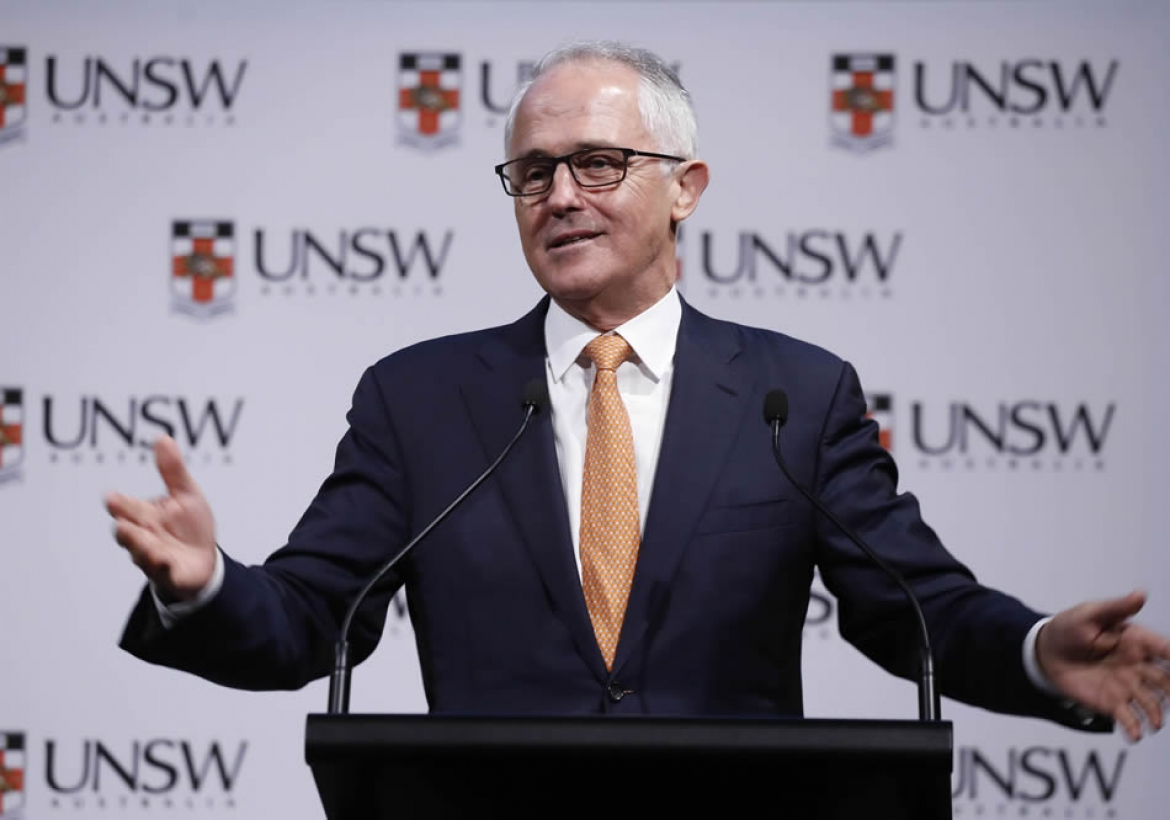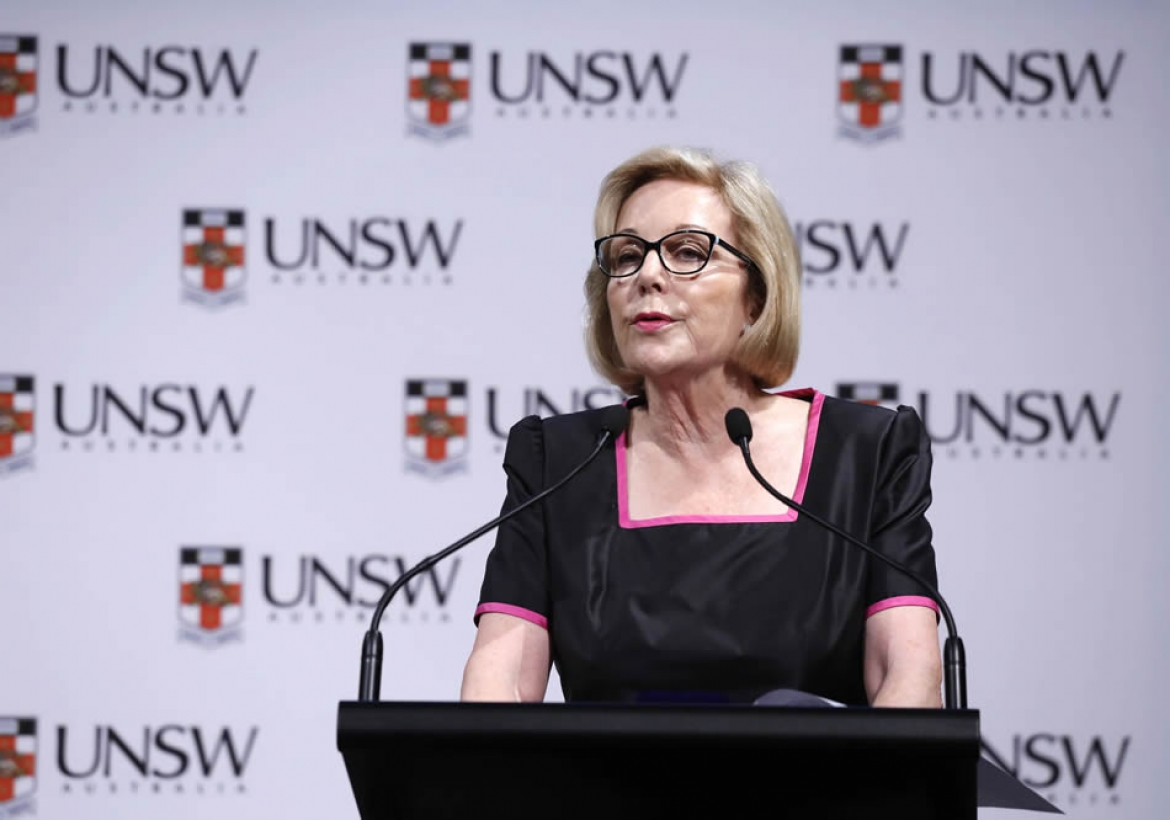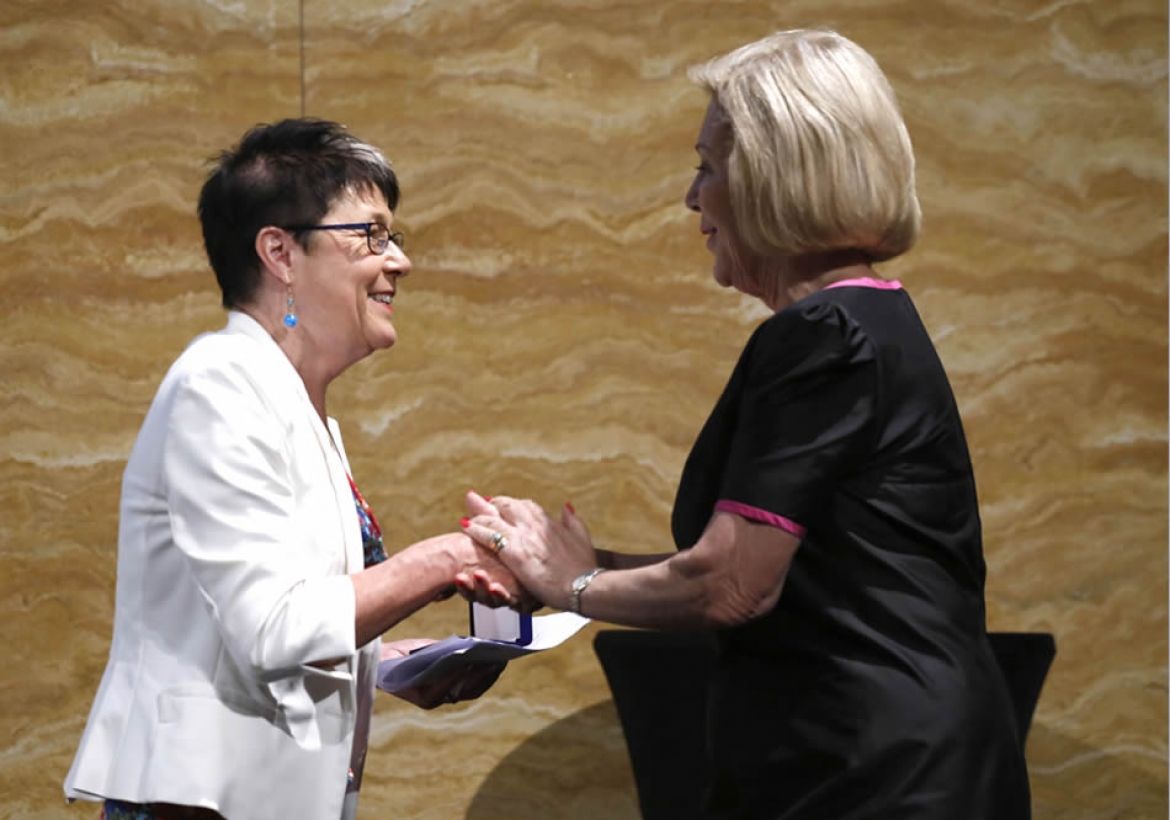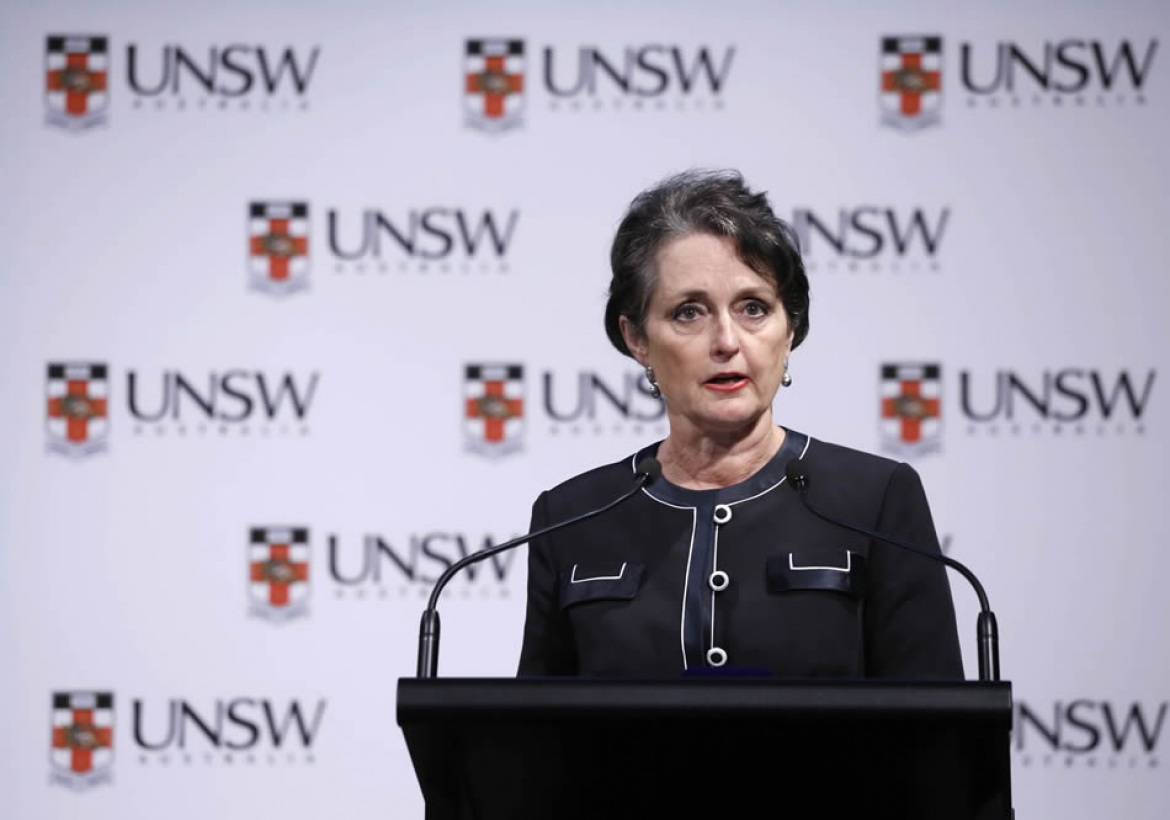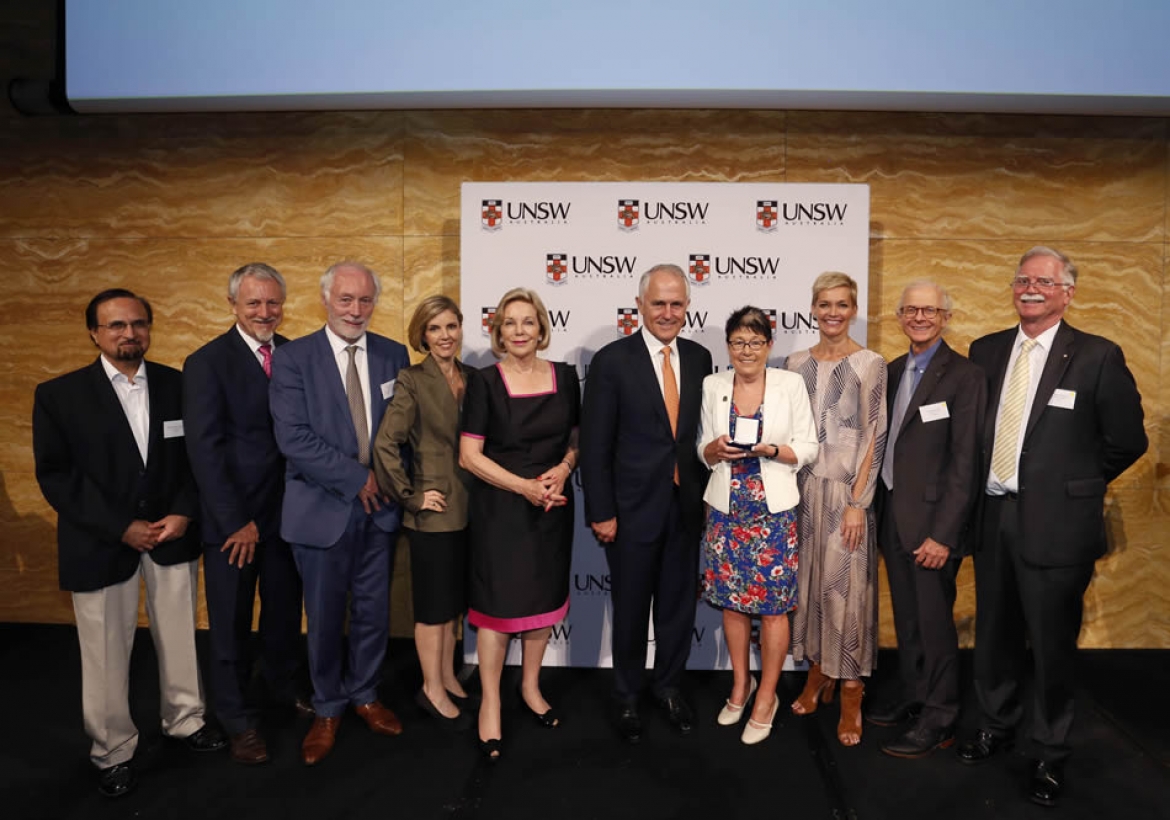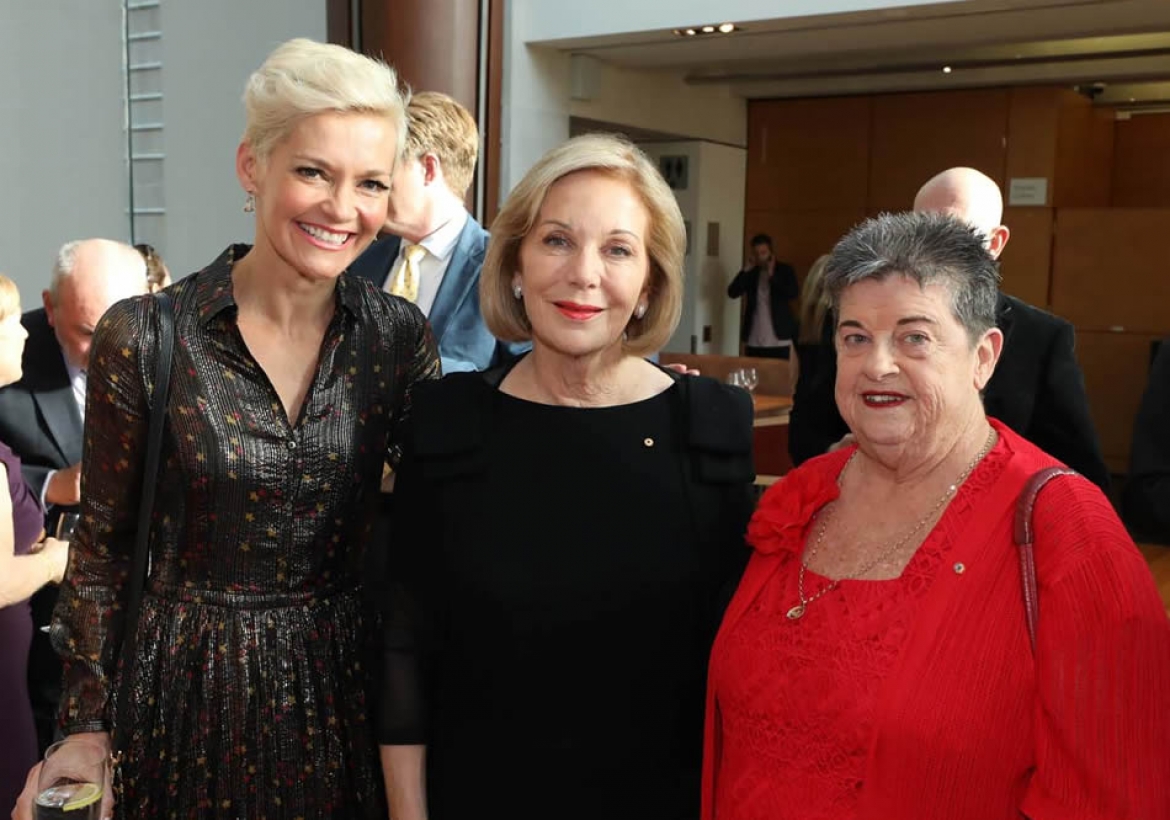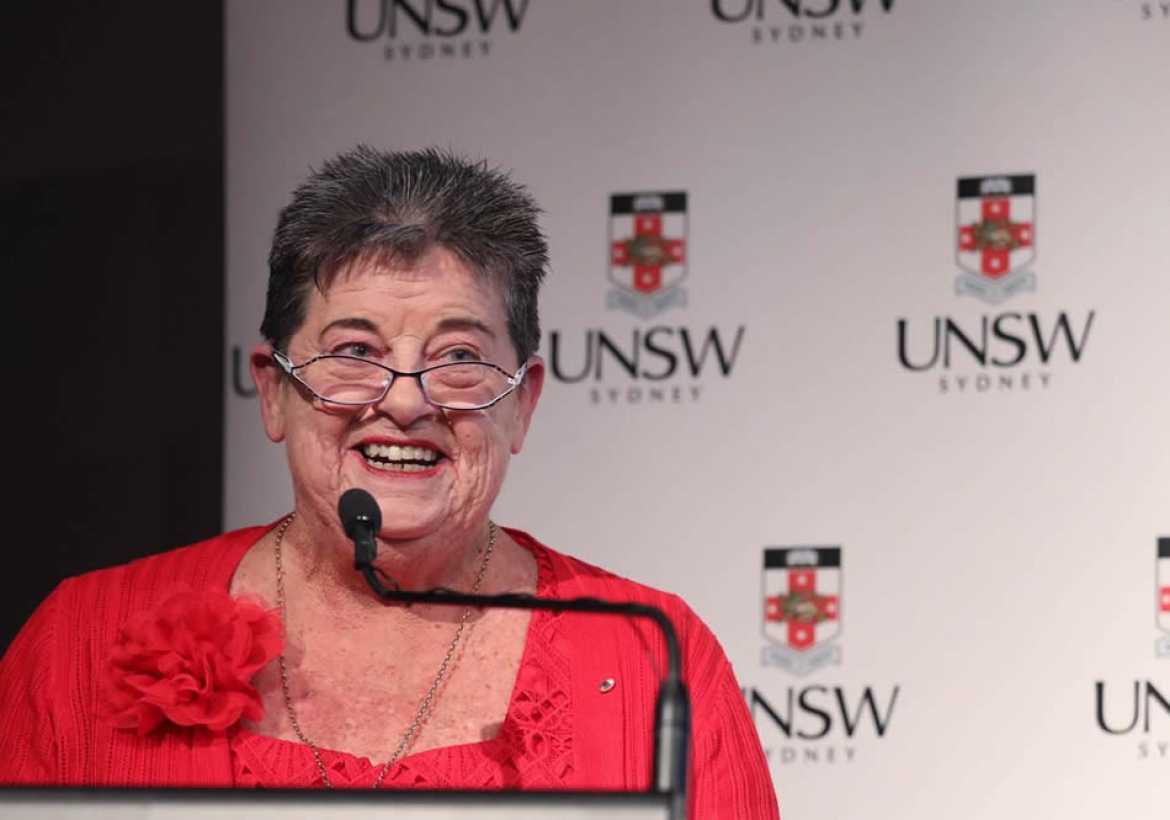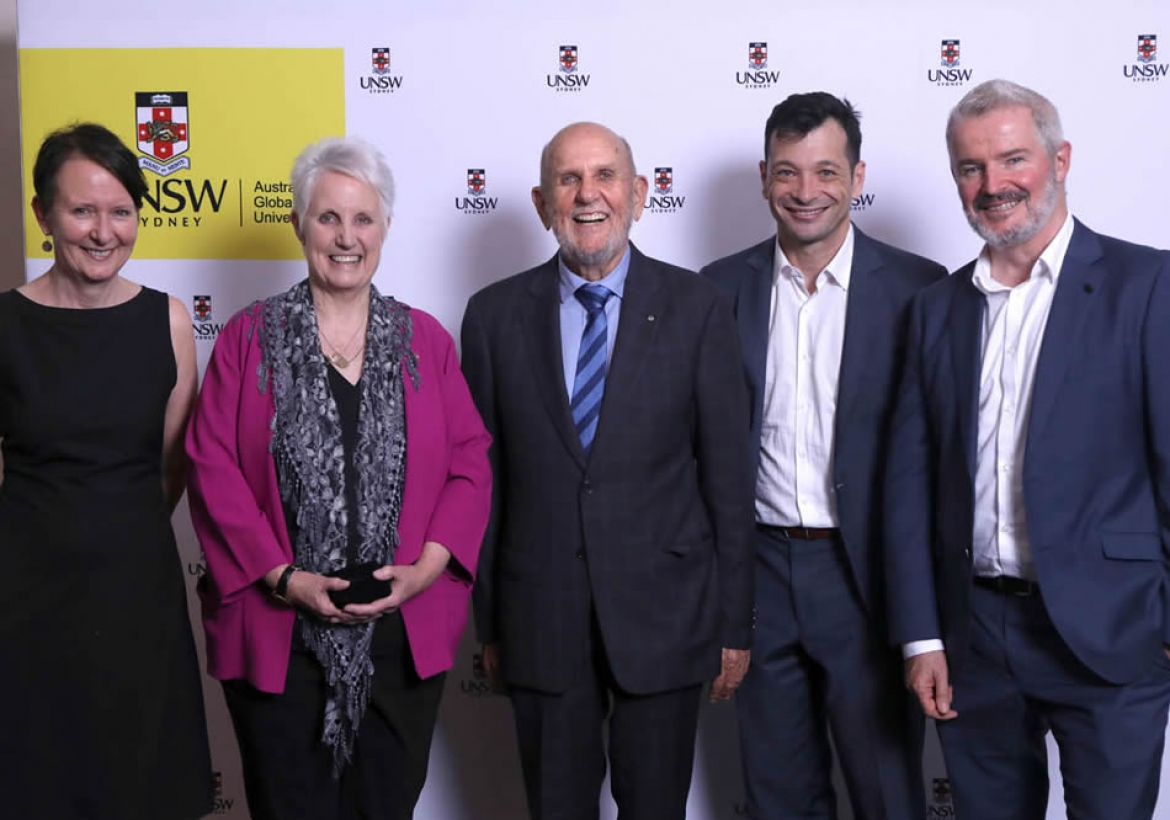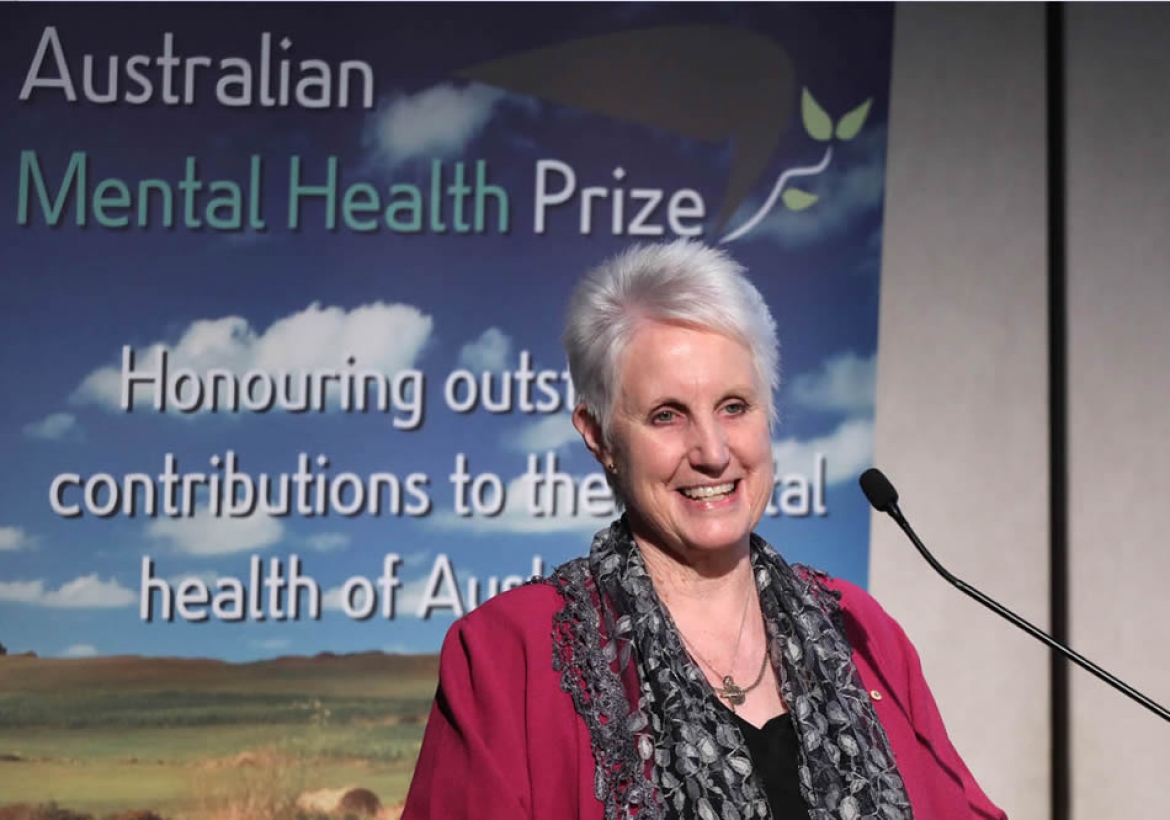Janne McMahon OAM and Emeritus Professor Gavin Andrews
Cures for mental disorders are possible and must be pursued
Two outstanding winners of the 2018 Australian Mental Health Prize were announced at UNSW Sydney in October 2018 to recognise the major contributions from both professionals and community advocates in mental health care.
The 2018 winners were Janne McMahon, an extraordinary mental health consumer advocate, particularly in the area of Borderline Personality Disorder, and Emeritus Professor Gavin Andrews, an incredibly respected innovator, clinician, teacher and researcher who retired earlier in 2018 after a career in mental health spanning 60 years.
The prize was presented by leading international researcher, clinician, youth mental health advocate and former Australian of the Year, Professor Patrick McGorry.
Janne McMahon OAM
Janne McMahon has tirelessly pursued better outcomes for people living with mental illness since 1997. She is the Founder and Executive Officer of the Private Mental Health Consumer Carer Network (Australia), the recognised peak Australian advocacy organisation for the private sector. She has appeared before ten parliamentary inquiries and has been a member of numerous expert reference groups, committees and working groups. She has been the driver of the development of the Practical Guide for Working with Carers of People with a Mental Illness and associated resources.
Janne has been instrumental in improving understanding and awareness of Borderline Personality Disorder (BPD) in Australia. She obtained agreement from the Australian Government for the development of the NHMRC Clinical Practice Guidelines for BPD and was also a member of the development committee. She has led the BPD National Training Strategy and lobbied politicians for the funding and establishment of the South Australian BPD Centre of Excellence where she is a member of the Executive Steering Committee. She has also worked with the Royal Australian and New Zealand College of Psychiatry to develop a consumer and carer guide for BPD.
“Borderline Personality Disorder is a complex and serious mental illness that is often misunderstood. People experience significant distress and impairment with this illness including emotional pain, self-harm, and difficulty relating to others. People with this disorder are frequently discriminated against and stigmatised.
“The good news story is that recovery is possible if people are able to access good care and support. I am passionate about ensuring that the voices of those with a lived experience are heard, particularly in relation to how services are delivered,” said Ms McMahon.
Improving community awareness and reducing prejudice are the cornerstones of Janne’s advocacy to improve acceptance and quality of life for consumers and carers. Janne herself has a lived experience of mental illness.
“While I have lived most of my life with mental illness, it does not define me. Raising awareness about mental illness and Borderline Personality Disorder has been very rewarding and has been a defining time in my life”.
Gavin Andrews AO
The lifetime work of Gavin Andrews has had a fundamental impact on the way mental disorders are diagnosed and treated in Australia and around the world today. Officially retiring earlier this year from his role as Professor of Psychiatry at UNSW Sydney after 60 years of dedication to mental health, he is among the world’s most highly cited scientists in this field.
Gavin’s research interests began with stuttering and extended to depression, epidemiology and treatment and classification of common mental disorders. He is responsible for preparing the first ever set of clinical practice guidelines in psychiatry and the first National Survey of Mental Disorders which helped to quantify the breadth and scope of mental illness in Australia. Gavin also pioneered online treatment courses, called THISWAYUP, for a range of issues including panic, depression, social phobia and generalised anxiety disorder.
“I believe the majority of people who develop a mental disorder today can be cured. Essentially, they will be able to say ‘That’s not a part of my life anymore’,” said Prof Andrews.
“Clinicians often doubt their own effectiveness because we’re all subject to the ‘clinicians’ illusion’ of basing judgements of effectiveness on who’s in the waiting room today. Naturally it contains people who are waiting to get better, and the people who have recovered are gone.
“The change will come from new clinical practice guidelines and ways of determining which treatments will suit individuals, but mostly it will come from collaboration between clinicians and patients about the possibility of recovery. Improved clinical outcome measurement will enable clinicians to know how effective they are, and patients will be keen to know about their own progress and will expect to recover.
“If you’re not improving after 30 days, ask ‘Why?’. Cure is possible, and we as clinicians, patients and their families must pursue it energetically.”
Exceptional finalists
Janne and Gavin were chosen out of an exceptionally strong field of six finalists for the prize, now in its third year, said Ita Buttrose, Chair of the Australian Mental Health Prize Advisory Group.
“The breadth of experience and dedication of this year’s six finalists is truly awe-inspiring. Their tireless pursuit for better outcomes for people living with mental illness deserves to be truly commended and that is exactly why the Prize was established. We need to shine a light on positive work in this field and encourage more focus, investment, research, education and understanding,” said Ms Buttrose.
The prize is supported by the UNSW Sydney, through its School of Psychiatry. Scientia Professor Philip Mitchell said the advisory committee decided once again to award the prize to two winners.
“The recently announced Productivity Commission inquiry into mental health spending highlights the importance of mental health to the Australian community. The Australian Mental Health Prize reflects this through acknowledging the incredible work being done.
“For this reason, we felt it important to recognise two very worthy people that represent both the professional and community advocacy sides of the mental health sector. Their decades of work have made a fundamental difference to people living with mental illness,” said Professor Mitchell.
